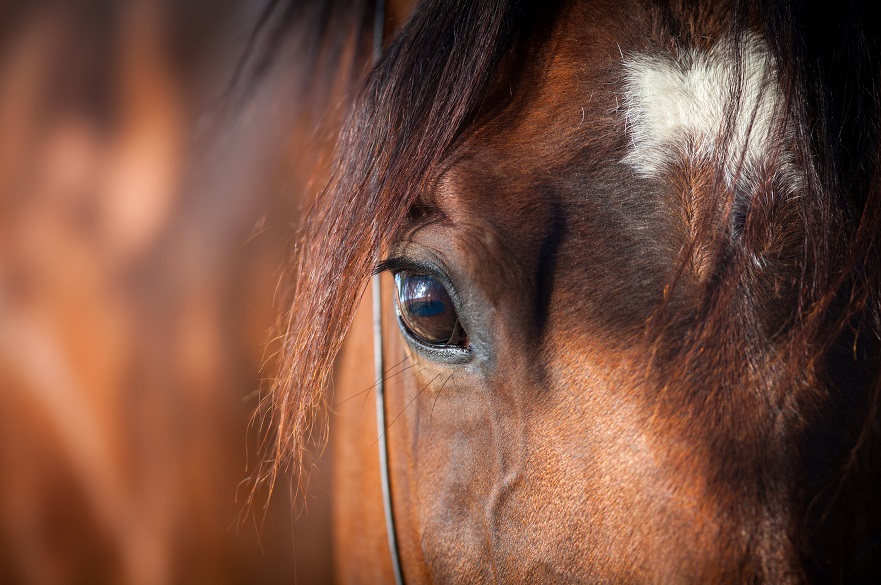Study aims to identify pain in horses from their facial expressions
Equine scientists are using artificial intelligence to recognise pain in horses from subtle changes in their facial expressions.
By Dave Rogers | Published on 22 July 2020
Categories: Press office; Research; School of Animal, Rural and Environmental Sciences;

A team at Nottingham Trent University has launched the international collaboration, which it is hoped will result in a better understanding of how painful certain conditions are, better treatments and improved monitoring of recovery.
The researchers are training a computer to automatically identify and track key features of horses’ faces that have been shown to change in response to pain.
The machine will then analyse videos of horses which have recently undergone surgery or are recovering from illness to see how these facial features change as their condition changes and they’re given pain relief.
As the system can track much more subtle fluctuations than the human eye, the researchers hope to learn much more about how horses express their pain and how this differs depending on their personality.
It is hoped that the system may be able to detect other emotions in the future and potentially help people to better understand how their horses feel about what they’re experiencing.
“The immediate application with regards to pain is for research and veterinary facilities to use the system to scan videos,” said Dr Carrie Ijichi, Senior Lecturer in the university’s School of Animal, Rural and Environmental Sciences.
She said: “This way, we can learn about how truly painful certain conditions are and how effective pain medication or treatments are. It would also help guide us in ensuring horses are given the most appropriately dosed treatment.
“We want to find markers that are sensitive to pain, better than the human eye can see, and which will provide us with an accurate grading for pain.
“As the technology improves hopefully this is something that anyone could have at home and use to assess pain in range of settings, including potentially while the horse is being ridden.”
Notes for Editors
Press enquiries please contact Dave Rogers, Public Relations Manager, on telephone +44 (0)115 848 8782, or via email.
Nottingham Trent University was named University of the Year 2019 in the Guardian University Awards. The award was based on performance and improvement in the Guardian University Guide, retention of students from low-participation areas and attainment of BME students. NTU was also the Times Higher Education University of the Year 2017, and The Times and Sunday Times Modern University of the Year 2018. These awards recognise NTU for its high levels of student satisfaction, its quality of teaching, its engagement with employers, and its overall student experience. The university has been rated Gold in the Government’s Teaching Excellence Framework – the highest ranking available.
It is one of the largest UK universities. With nearly 32,000 students and more than 4,000 staff located across four campuses, the University contributes £900m to the UK economy every year. With an international student population of more than 3,000 from around 100 countries, the University prides itself on its global outlook. The university is passionate about creating opportunities and its extensive outreach programme is designed to enable NTU to be a vehicle for social mobility. NTU is among the UK’s top five recruiters of students from disadvantaged backgrounds and was awarded University of the Year in the UK Social Mobility Awards 2019.
A total of 82% of its graduates go on to graduate entry employment or graduate entry education or training within six months of leaving. Student satisfaction is high: NTU achieved an 87% satisfaction score in the 2020 National Student Survey, above the sector average of 83%.